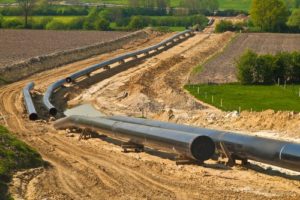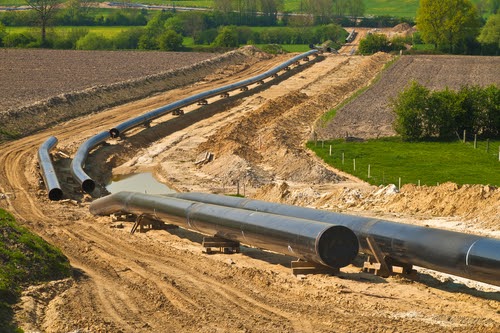
HARRISBURG, PA (February 22, 2023) – Today, the Pennsylvania Supreme Court handed down a major decision in two suits where the public sought reimbursement for legal costs in environmental cases: the Clean Air Council, the Delaware Riverkeeper Network, and Mountain Watershed Association v. DEP and Sunoco Pipeline and Gerhart v. DEP and Sunoco Pipeline cases.
The Supreme Court’s decision reversed a lower court ruling that had put up a major barrier to reimbursement of legal costs for environmental lawsuits brought by non-profits and residents. Now, members of the public, who are harmed by permits allowing industrial activities, and who successfully appeal those permits, are more easily able to get reimbursement of their legal costs. The reimbursement can come not only from the state, who issued the permit, but from the company holding the permits, and profiting from the permitted activity. Legal experts, fees, and other costs necessary for these cases can easily reach tens or hundreds of thousands of dollars, and the cases can go on for years or even decades, making appeals like this out of reach for most absent the ability to recoup costs.
The decision is a victory for the environmental organizations, who had sought but been denied reimbursement for their legal costs from Sunoco Pipeline, the builder of the controversial Mariner East pipelines. It is also a victory for the Gerhart family, landowners along the pipeline route who stood up to the company and also had success at the Pennsylvania Environmental Hearing Board.
“Today’s ruling from the Pennsylvania Supreme Court is a huge win for the public,” said Joseph Minott, Executive Director and Chief Counsel of Clean Air Council. “Too often, when members of the public have been harmed by big polluters, they are unable to afford legal support. Today’s ruling makes it easier for the public to be compensated for their legal costs when their lawsuits are successful. This opens the door for the public to finally have their day in court and for justice to be restored.”
Melissa Marshall, Community Advocate with the Mountain Watershed Association stated, “We are pleased with the decision for two reasons. Not only does it remedy a bad standard, but it also clarifies, for the first time, that it is the permittees – often exploitative industries, such as mining and fracking — and not just the taxpayers, who should bear the financial burden when environmental groups bring protective lawsuits.”
“Today’s decision appropriately recognizes the significant role that citizen objectors play in the vindication of environmental rights and the General Assembly’s laws protecting the public natural resources. This ruling helps support legal action against bad permitting decisions, and holds accountable the parties who stand to benefit financially from those decisions,” said Kacy Manahan, Senior Attorney for the Delaware Riverkeeper Network.
“Today’s opinion shows that Pennsylvanians who enforce the Clean Streams Law have a voice and that applicants who submit faulty permit applications to DEP can be held responsible for their sloppy or incompetent work,” said Rich Raiders, attorney for Stephen and Ellen Gerhart, Huntingdon County landowners who won a fee award from DEP, but not Sunoco, in a case decided with the Clean Air Council matter in today’s opinion. The Gerharts successfully challenged a wetlands determination on their Huntingdon County property where Sunoco was required to remediate a parcel of forested wetland disturbed during construction.
In March of 2022, Clean Air Council, Mountain Watershed Association, and the Delaware Riverkeeper Network petitioned the Pennsylvania Supreme Court to overturn that lower court decision, which made it nearly impossible for residents or advocacy organizations to be compensated for their legal expenses from the permit holder when appealing a DEP permit. The Commonwealth Court decision affirmed the Environmental Hearing Board’s decision that denied the groups’ request for Energy Transfer (Sunoco Pipeline’s parent) to compensate parties for their legal fees stemming from an appeal of Sunoco’s Mariner East 2 pipeline permits.

